new posts in all blogs
Viewing: Blog Posts Tagged with: Orson Scott Card, Most Recent at Top [Help]
Results 1 - 22 of 22
How to use this Page
You are viewing the most recent posts tagged with the words: Orson Scott Card in the JacketFlap blog reader. What is a tag? Think of a tag as a keyword or category label. Tags can both help you find posts on JacketFlap.com as well as provide an easy way for you to "remember" and classify posts for later recall. Try adding a tag yourself by clicking "Add a tag" below a post's header. Scroll down through the list of Recent Posts in the left column and click on a post title that sounds interesting. You can view all posts from a specific blog by clicking the Blog name in the right column, or you can click a 'More Posts from this Blog' link in any individual post.

By:
Becky Laney,
on 1/25/2015
Blog:
Becky's Book Reviews
(
Login to Add to MyJacketFlap)
JacketFlap tags:
favorite books,
adult fiction,
Orson Scott Card,
Adult Science Fiction,
Adult Fantasy,
book I bought,
books reviewed in 2015,
books reread in 2015,
Speculative Fiction Reviewed in 2015,
Add a tag
The Worthing Saga. Orson Scott Card. 1990. Tor. 465 pages. [Source: Bought]
In many places in the Peopled Worlds, the pain came suddenly in the midst of the day's labor. It was as if an ancient and comfortable presence left them, one that they had never noticed until it was gone, and no one knew what to make of it at first, though all knew at once that something had changed deep at the heart of the world. This will be my third blog review for Orson Scott Card's The Worthing Saga. I reviewed
this one in 2007 and
2012. It is one of my favorite, favorite books. And my FAVORITE Card novel. (Though I love Ender's Game and Speaker for the Dead.)
I love the world-building. I find the three settings within the book to be fascinating. (There is Lared's home planet which is the present-day setting; there is Capital, the planet from Jason Worthing's memory and stories, Capital becomes "real" to Lared as he experiences Worthing's memories through dreams; there is Worthing, the planet that Jason colonized with a handful of colonists thousands of years before the novel opens, again this planet becomes "real" to Lared as he experiences other people's memories through Justice, Jason's descendent.) Readers get a taste of all these societies and communities. Capital is decadent and immoral and corrupt. It is obsessed with the notion of eternity--of living forever. It "lives forever" by drug use. Somec. You might be under Somec--asleep--for anywhere from one year to ten years, and then awake for anywhere from one day (like the Empress) to three years. But somec disrupts EVERYTHING good and natural about life. An example of the decadence and immorality can be seen in the "lifeloops." People filming/recording their "real" lives for everyone to watch. Most--if not all lifeloops--are graphic in nature. It's hard not to be disgusted by the depiction. (For example, one actress complaining to her agent that he better not hire any seven year old boys for her next film.) Closely connected to the world-building, is the mythology of it. How Abner Doon's name lives on. He IS the devil. How Jason Worthing's name lives on. How people see him as being GOD. Both men are very much human, having strengths and weaknesses, being oh-so-fallible. But they have become collectively so much more than that. They've lost their humanity. Truth has been shaped and reshaped too many times to allow for them to be just human.
I love the characterization. I love getting to know Lared, Sala, Jason, and Justice. Not to mention all the men and women from the memories and stories. (I have a soft spot for Hoom.) I love the storytelling. I love the dialogue. I love how everything is layered together. How the story all comes together. How Lared slowly but surely pieces things together and comes to understand--if understand is the right word--the world. Card's characters are so very human, so vulnerable, so fallible. Readers see humans at their best and at their absolute worst within The Worthing Saga. Moments of compassion and redemption make it so worth while.

I love the ideas. I love the depth and substance. That is not to say that I agree absolutely with every single philosophical idea within the book. But it goes places most fiction doesn't. It asks real questions, tough questions. It explores ideas. One also sees the consequences (or possible consequences) of ideas. But it encourages you to think about deep things, to explore questions like
why is there pain? why is there suffering? would the world be a better place without pain, without suffering? Is pain a necessary evil? Do we only feel joy and happiness because we know about pain and sorrow? what makes life beautiful? do we become better people through our struggles with life?I do enjoy the framework. The Worthing Chronicle (1982) makes up half of The Worthing Saga. This is THE story with Lared being visited by Jason and Justice shortly after the day of pain disrupts his community. (It really is a haunting opening.) The second half of the book consists of short stories. Most of these short stories were written years before The Worthing Chronicle and were previously published. Tales of Capitol (1979): "Skipping Stones," "Second Chance," "Lifeloop," "Breaking the Game," "Killing Children," and "What Will We Do Tomorrow." Tales from the Forest of Waters (1990, 1980): "Worthing Farm," "Worthing Inn," and "The Tinker." Of these stories, I find Skipping Stones, Second Chance, and Breaking the Game to be most memorable. After you've read these stories, you almost need to go back and reread the first section. I'm not sure you can fully appreciate the book without rereading it a few times and absorbing it. Most of the stories--but certainly not all of them--are emotional. I love that the book is a book to be EXPERIENCED.
© 2015 Becky Laney of
Becky's Book Reviews
Earth Awakens. Orson Scott Card and Aaron Johnston. 2014. Tor. 400 pages. [Source: Library]
I enjoyed reading Earth Awakens the third in a new series by Orson Scott Card. At first, I had a hard time reconnecting to all the characters because it's been a year since the last book. There are many characters to keep up with after all. But by the time I was halfway through this one, I was hooked once more. I liked the characters. I didn't always like how they acted. But Card can write flawed characters that I actually like.
In this third book, all the characters are trying to fight the Formics. Some are working together officially to defeat the aliens. Others are more on their own with their own plan. For example, some characters are fighting them on earth; other characters are fighting them in space. But by the end of this one, all the characters stories have merged into one which is probably for the best.
Series books are always so difficult to review because to talk about plot reveals spoilers from the other books. But essentially I liked this one. Maybe not love, love, love but a good, solid like.
© 2014 Becky Laney of
Becky's Book Reviews
Now available!
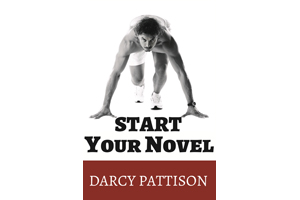
Here’s a quote from Orson Scott Card, the author of Ender’s Game:
So as you look at your bogged down first draft, look to see how much of your effort is spent on withholding information, and then examine whether your reader has any reason to care about what’s going on as long as that information is withheld. Most novice writers imagine that this is how suspense is created–by hodling back key information from the reader. But that is not so. Suspense comes from having almost all the information–enough information that the audience is emotionally involved and cares very much about that tiny bit of information left unrevealed.
Usually the only information that you withhold is this: what is going to happen next.
–Orson Scott Card. How to Write Science Fiction and Fantasy, p. 85.
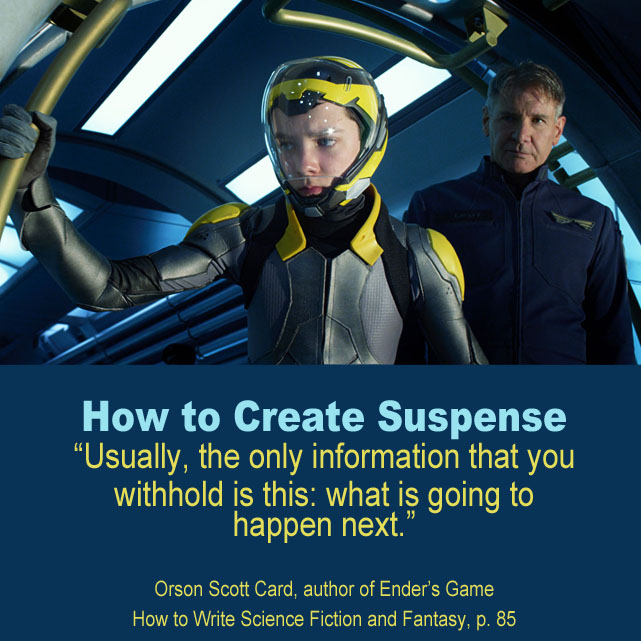


By: Stacy A. Nyikos,
on 10/2/2013
Blog:
Stacy A. Nyikos
(
Login to Add to MyJacketFlap)
JacketFlap tags:
deconstruction,
Star Wards,
genre defiance,
Science Fiction,
Movies,
Star Trek,
Orson Scott Card,
Ender's Game,
Borg,
Add a tag
Ender's Game
Orson Scott Card
Age Group: ?
With the movie quickly approaching, I got my hands on a copy of this almost cultish book. As a kid, I gobbled up science fiction - Dune, anything by Mary Stewart, Martian Chronicles, every Stars Wars book ever written. But Ender's Game came out way after my science fiction phase. I was well into battling my way through such wonders as the far more scientific (than fictional) Charles Monod's
Chance and Necessity. Sigh. Hours of my life I'll never get back.
For those of you who haven't had the pleasure yet,
Ender's Game is a battle heavy book about a boy who has to save humankind from the perceived threat of an alien race, much like the Borg for all you trekkie fans, that have attacked earth twice. There will be no third invasion. Instead, we're taking the battle to their home world and Ender must lead the attack.
Despite a zillion fight scenes and at times unsettling brutality, I enjoyed
Ender's Game. The premise was intriguing and the characters all Byronic heroes in their own way, but more than anything what kept me coming back for more was that the writing perplexed me. Card defies boxes.
Ender is a child who writes, speaks and acts like an adult. Entirely. There is nothing childlike about him. Either this is genius on Card's part, a particularity of the genre science fiction (there are no childlike characters) or an inability to create a child protagonist. Either way, unchildlike child protagonists are definitely Card's calling card, which has led me to theorize as to what good they do. I've come up with three: 1) this kind of character holds up a mirror up to the way we treat children in war zones; 2) this character portrays the way children view themselves, and 3) these characters create stories that defy categorization.
Three intrigues me most because Card's protagonist appeals to young audience and well as older ones, and has created a cultish following among none other than teen readers. How's that for defying/embracing all categories at once? Seems like genius on Card's part. His work defies the neat boxes publishing has attempted to erect and neatly divide books into. In getting rid of the boxes and making a jederman character, Card's stories unsettle me, and in unsettling me, challenge me as a reader to think, reassess, reenvision the world around her, and as a writer to challenge boundaries too. Yep, definitely genius.
For more great reads check out
Barrie Summy's website. It's brimming with temptation!
By:
Jean M. Malone,
on 5/18/2013
Blog:
Adventures of a Part-Time Asthmatic
(
Login to Add to MyJacketFlap)
JacketFlap tags:
Teens,
Reading,
writing,
Orson Scott Card,
Future,
Growing Up,
Fear,
Graduation,
Leaving Home,
Being Brave,
Add a tag
 Last weekend was my alma mater’s high school graduation. A thrilling, momentous (and gorgeous) day! It made me think back to my own graduation and the fact that what scared me at 18 scares me still: moving forward into the unknown. In fact, if I could go back and give myself advice it would probably be this: The future is scary. It never stops being scary. Get used to it. And don’t be scared.
Last weekend was my alma mater’s high school graduation. A thrilling, momentous (and gorgeous) day! It made me think back to my own graduation and the fact that what scared me at 18 scares me still: moving forward into the unknown. In fact, if I could go back and give myself advice it would probably be this: The future is scary. It never stops being scary. Get used to it. And don’t be scared.
Don’t get me wrong, I was excited to leave high school, to venture out of state to college, to make new friends and take classes towards two majors I was passionate about (screenwriting! creative writing! so much writing!). But I was also terrified. My high school was a cocoon of all that was familiar and comfortable and good. Not that every day was bliss. There were fights and tears and stress. But what I realized on graduation night was that I wasn’t ready to leave. I’m never ready to leave: not school, not a party, not vacation. I’m not ready to leave for work in the morning, and I’m not ready to leave work in the afternoon. And I’m NEVER ready to go to bed at night, no matter how tired I feel.
I spent much of the summer before college doing what I loved: reading–and finally there was no required reading. Free to read what I wanted, I think I read nothing but Orson Scott Card. I’m not going to get political here because this was during an innocent time before the internet gobbled me whole, so these books were merely the words on the page and what I brought to them.
I remember it so clearly. I was sitting on the deck at my parents’ house, feeling sorry for myself because in a few months time I would be far away from the beautiful rolling hills, when I came to one specific passage.
Alvin grimaced at him. ‘Taleswapper, I’m not ready to leave home yet.’
‘Maybe folks have to leave home before they’re ready, or they never get ready at all.”
I stopped and read it again. Because although I had not named it out loud, that was me. I was Alvin. And Taleswapper’s words were exactly what I needed to hear: it’s okay to be scared. It’s okay to not feel ready. Because if you wait to feel ready, then you’ll be waiting forever. Sometimes you have to jump out of the plane and trust that your parachute will open.*
*(Please note, I have never been sky diving, but I know someone who has, so that’s almost the same thing, right?)
It’s funny to think back to that day, because it it planted a seed which has motivated me many times since. Not always, of course. Sometimes I still chicken out. But sometimes when anxiety refuses to release its stranglehold: a new relationship, a new job, a new adventure–I find myself thinking back to those wise words, and I realize that I will be okay, because I’m always okay.
And if Orson Scott Card is not your bent, a good friend of mine recently gave me a new mantra, one that she repeats to her daughter whenever she is scared worried. “You are BRAVE. You are STRONG. You are WONDERFUL. And YOU will be fine.” What better words could you ever need?
There are so many things I could have missed out on, if I gave into fear:














So do you embrace the future at full tilt? Or are you worry-wart* like me?
*(Officially diagnosed by my 5th grade teacher, Mrs. Burton. Thanks for that.)
What gets you through the scary times?
Tagged:
Being Brave,
Fear,
Future,
Graduation,
Growing Up,
Leaving Home,
Orson Scott Card,
Reading,
Teens,
writing 
Artist Chris Sprouse, who would have been drawing controversial writer Orson Scott Card’s contribution to the upcoming Superman anthology Adventures of Superman, has stepped down from the project today. He cites the media furore over the comic as his reason for dropping the project. As a result, the first issue of this digital-first series will feature stories from Jeff Parker/Chris Samnee, Justin Jordan/Riley Rossmo, and Jeff Lemire.
DC have also issued a statement hoping to see Sprouse on a new project soon. Hopefully this will be a Superman one as well, because his Superman is super-aces –
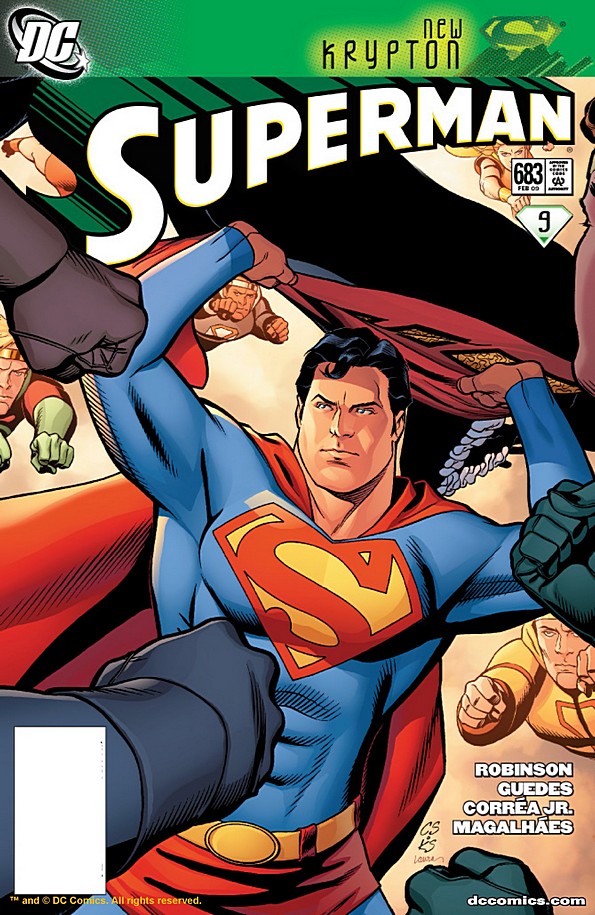
Sprouse’s statement regarding leaving the comic, which became controversial due to Card’s well-known association with anti-gay activism, is as follows:
The media surrounding this story reached the point where it took away from the actual work, and that’s something I wasn’t comfortable with. My relationship with DC Comics remains as strong as ever and I look forward to my next project with them.
DC have responded amicably to the artist’s decision, saying:
We fully support, understand and respect Chris’s decision to step back from his Adventures of Superman assignment. Chris is a hugely talented artist, and we’re excited to work with him on his next DC Comics project. In the meantime, we will re-solicit the story at a later date when a new artist is hired.
The issue was scheduled for April, and had sparked a massive debate over whether Card was the wisest of choices for DC to hire on a Superman story. Some people thought he should have the right to free speech, some people thought maybe DC shouldn’t have hired a real world villain to write a Superman story. That oil-and-water combination of opinions has basically been interminably floating over comic book comment threads, and everybody’s had a really good, friendly time of things.
The real news from all this? It’s that there’s no need for people to boycott issue #1 anymore! Jeff Parker! Chris Samnee! Superman! Wooooooo!!
 Nearly 8,000 readers have signed a petition at All Out, protesting DC Comics’ decision to hire science fiction author Orson Scott Card to write the first issue of Adventures of Superman.
Nearly 8,000 readers have signed a petition at All Out, protesting DC Comics’ decision to hire science fiction author Orson Scott Card to write the first issue of Adventures of Superman.
Card has been an outspoken critic of gay marriage, drawing criticism from some fans. Zeus Comics in Dallas has already decided not carry the print edition of the comic. Here’s an excerpt from the online petition:
He’s written publicly that he believes marriage equality would lead to the end of civilization. He’s also on the board of a notorious anti-equality organization. We need to let DC Comics know they can’t support Orson Scott Card or his work to keep LGBT people as second-class citizens. They know they’re accountable to their fans, so if enough of us speak out now, they’ll hear us loud and clear. Sign and share!
continued…
New Career Opportunities Daily: The best jobs in media.
TweetThere’s been controvery over the past few days following DC’s decision to hire Orson Scott Card, a pioneer in contemporary homophobia, as one of the writers on a new digital-first Superman anthology series. And although the internet has been going back and forth on the subject for the past few days, the first active step [...]
By: Ninja Librarian Bill,
on 12/3/2012
Blog:
Boys Rock, Boys Read!!!
(
Login to Add to MyJacketFlap)
JacketFlap tags:
Speaker For The Dead,
Jonah Hex,
For a Few Dollars More,
Lee Van Cleef,
Ender's Shadow,
Bury Me In Hell,
Orson Scott Card,
Ender's Game,
Clint Eastwood,
Justin Gray,
Jimmy Palmiotti,
Add a tag
Hi all you cool cats in "The Land o Blog." I've been travelling the waste lands all by my lonesome for a little while now, but have found the communication portal once again. Big shout out to Iron Carl for carrying the load all by his lonesome will I was missing in action!!!! Luv ya dude!!!! Anyway since I'm back I'd like to make this post a little special. Hold tight all:
For a Few Dollars More staring Clint Eastwood and Lee Van Cleef!!!!
After reading my first review you will understand why I included this awesome clip!!!!
Jonah Hex, Bury Me In Hell by Justin Gray, Jimmy Palmiotti and others - For those of you unfamiliar with Jonah Hex let me fill you in. Jonah Hex is the ultimate western anti-hero out there in the world of comics. This Graphic Novel covers the comics numbered 61-70. If you love the Spaghetti Westerns (The Good, the Bad and The Ugly, For a Few Dollars More and A Fistful of Dollars) made with Clint Eastwood, Lee Van Cleef and Eli Wallach (The very best with all 3 involved), you will love this Graphic Novel. This GN includes Jonah taking on a Killer Octopus (I know this one has you scratching your head), being stranded in a town where breakfast, lunch and dinner are more than a tad odd and plenty of other stories involving bandits, gunslingers, saloons, whiskey and general wild west adventure. I must caution that this book is not for younger readers as the violence, language and general mature level is definitely for older western fans. My recommendation would be at least 14 years old and up. If you like this one there are many other excellent Jonah Hex GNs out there. Great stuff!!!!!
 Speaker For The Dead by Orson Scott Card -
Speaker For The Dead by Orson Scott Card - Orson Scott Card is by far and away one of the finest writers of Science Fiction that I know. Now to me what makes for great Scfi is not just futuristic machines and gadgets, spaceships, etc., but also great written characters and a solid plot that peaks your interest. "Speaker For The Dead" has all of these items and I flew through it. Now if you are not familiar with "Ender's Game," the first book in which we meet Ender Wiggins and the war against the Buggers is held, stop right now and read that book first. I would also suggest following "Ender's Game" with "Ender's Shadow" about another interesting character named Bean. Okay after reading those two books dive into this one. This book is about what happens to Ender after The Bugger War ("Ender's Game" and "Ender's Shadow" occur at the same time, just focusing on different characters). He becomes what is called a Speaker of the Dead and tells the story of people's life that are no longer with us.

The story starts on a world know as Lusitania that is colonized by humans. The problem is there is an alien race already living their known as the Porquinhos or Piggies (although in no way or form do they resemble pigs) which means because of incidents that occurred in "Ender's Game," humans are forced by The Starway Congress to have limited contact with this newly discovered species. The limited contact that is allowed for study leads to quite a mystery. A mystery that involves death and causes great pain and suffering until it builds to multiple calls for the most famous Speaker of the Dead....Andrew Wiggins. also not known by many to be Ender (despised by many for reasons you will have to read about)!!!!!!! A great read that I thoroughly enjoyed. Recommended for those13 and up.
Well I missed you guys and I will be back soon. Let me know if you are reading something you really like by commenting on this post?
Peace all,
Bill
 The producers of the Ender’s Game adaptation have launched an on-set Tumblr for fans to follow the creation of the movie.
The producers of the Ender’s Game adaptation have launched an on-set Tumblr for fans to follow the creation of the movie.
The weekly posts have featured photos of props, production sets and a sighting of Ender Wiggin himself, actor Asa Butterfield. What do you think of the casting?
Author Orson Scott Card will publish Earth Unaware, a prequel title to Ender’s Game, in July 2012. Besides that book, Card has several other manuscripts in the works including the next installments for the The Shadow Saga, the Women of Genesis series, the Pastwatch series, the Mithermages series, The Mayflower trilogy and the Pathfinder series. (via Shelf Awareness)
New Career Opportunities Daily: The best jobs in media.
 In South Carolina, Aiken Public Safety have closed a criminal investigation into a Schofield Middle School who read to his students from Ender’s Game by Orson Scott Card. The investigation began when a mother complained to police and school officials over “pornographic” reading material in the classroom.
In South Carolina, Aiken Public Safety have closed a criminal investigation into a Schofield Middle School who read to his students from Ender’s Game by Orson Scott Card. The investigation began when a mother complained to police and school officials over “pornographic” reading material in the classroom.
Here’s more about the case: “On March 12, the teacher was placed on administrative leave while police and school officials investigated whether he breached school policy or the law when he read from three books, among them Ender’s Game by Orson Scott Card, which became the focus of the probe when a 14-year-old student’s mother complained about the subject matter of the book.”
Despite the end to the criminal investigation, the Aiken County School District’s internal investigation is still ongoing. If you want to share your opinion about the controversy, here is contact information for the office of the school district’s superintendent.
continued…
New Career Opportunities Daily: The best jobs in media.
 In South Carolina, Aiken Public Safety have closed a criminal investigation into a Schofield Middle School who read to his students from Ender’s Game by Orson Scott Card. The investigation began when a mother complained to police and school officials over “pornographic” reading material in the classroom.
In South Carolina, Aiken Public Safety have closed a criminal investigation into a Schofield Middle School who read to his students from Ender’s Game by Orson Scott Card. The investigation began when a mother complained to police and school officials over “pornographic” reading material in the classroom.
Here’s more about the case: “On March 12, the teacher was placed on administrative leave while police and school officials investigated whether he breached school policy or the law when he read from three books, among them Ender’s Game by Orson Scott Card, which became the focus of the probe when a 14-year-old student’s mother complained about the subject matter of the book.”
Despite the end to the criminal investigation, the Aiken County School District’s internal investigation is still ongoing. If you want to share your opinion about the controversy, here is contact information for the office of the school district’s superintendent.
continued…
New Career Opportunities Daily: The best jobs in media.
 In South Carolina, Aiken Public Safety have closed a criminal investigation into a Schofield Middle School who read to his students from Ender’s Game by Orson Scott Card. The investigation began when a mother complained to police and school officials over “pornographic” reading material in the classroom.
In South Carolina, Aiken Public Safety have closed a criminal investigation into a Schofield Middle School who read to his students from Ender’s Game by Orson Scott Card. The investigation began when a mother complained to police and school officials over “pornographic” reading material in the classroom.
Here’s more about the case: “On March 12, the teacher was placed on administrative leave while police and school officials investigated whether he breached school policy or the law when he read from three books, among them Ender’s Game by Orson Scott Card, which became the focus of the probe when a 14-year-old student’s mother complained about the subject matter of the book.”
Despite the end to the criminal investigation, the Aiken County School District’s internal investigation is still ongoing. If you want to share your opinion about the controversy, here is contact information for the office of the school district’s superintendent.
continued…
New Career Opportunities Daily: The best jobs in media.
.jpeg?picon=3655)
By: alethea aka frootjoos,
on 2/7/2012
Blog:
Read Now Sleep Later
(
Login to Add to MyJacketFlap)
JacketFlap tags:
science fiction,
friendship,
manga,
middle grade,
Orson Scott Card,
space,
boarding school,
aliens,
Tor Teen,
alethea,
2011,
frootjoos,
HonoelAIbardolaza,
TorForge,
Emily Janice Card,
Add a tag
Laddertop (Laddertop, #1) by Orson Scott Card,
Emily Janice Card / Illustrated by Honoel A. Ibardolaza
Publication date: 27 September 2011 by
Tor/Forge
ISBN 10/13: 0765324601 | 9780765324603
Category: Middle Grade Science Fiction Manga
Keywords: Science fiction, space, aliens, middle grade, friendship
Format: Paperback, audiobook (ARC received from Tor/Forge)
Alethea's synopsis:
Based on Orson Scott Card's
Ender's Game series, this first volume follows Robbi and her rambunctious friend, Azure, when they are recruited to Laddertop--one of four space towers suspended 36,000 miles over the earth by a benevolent alien race called The Givers. Fierce competition tests the relationships between friends and enemies both. As Robbi contemplates what she is doing at the Academy, she begins to ponder the question too few people seem to be asking: are The Givers truly friends of Earth?
Alethea's Review:
I really loved
Ender's Game and so was excited to find out that a related manga was in the works. I found
Laddertop entertaining, but a bit of a let-down. It's certainly not as deep or emotionally abrasive as the original story. This is understandable not because Azure and Robbi are eleven (Ender is younger still when he enters Battle School) but because of the format and audience chosen, but still, it's generally disappointing.
The story starts at a fair pace then comes to a quick halt--this is meant to be a series after all, and it wouldn't do to give it all away at once. But this first volume gives hardly any data to process--only query after unanswered query. Who are the Givers? What is the Scan? Why can only children work in the tubes--yes, we know the

By: Maryann Yin,
on 11/28/2011
Blog:
Galley Cat (Mediabistro)
(
Login to Add to MyJacketFlap)
JacketFlap tags:
Young Adult Books,
Authors,
Orson Scott Card,
Penguin,
Legend,
Ender's Game,
Kristin Nelson,
Les Miserables,
Victor Hugo,
Marie Lu,
Add a tag
 Marie Lu‘s debut novel, Legend, hits the shelves tomorrow. We caught up with Lu (pictured, via) to learn more about how authors can utilize social networking tools, the writing process for the book and her views on being an Asian-American author. The highlights follow below…
Marie Lu‘s debut novel, Legend, hits the shelves tomorrow. We caught up with Lu (pictured, via) to learn more about how authors can utilize social networking tools, the writing process for the book and her views on being an Asian-American author. The highlights follow below…
Q: How did you land your book deal?
A: My agent, Kristin Nelson, first took me on for a novel that we ultimately didn’t sell. While we waited for feedback on that one, I began writing Legend. After two intense rounds of edits with Kristin, we submitted Legend to publishers in the summer of 2010, and I recall shrieking in my apartment when Kristin told me it was going to auction with six interested publishers. Legend sold to Penguin a couple of weeks later!
Q: You drew inspiration for Legend from watching a musical production of Les Miserables. During the writing process, did you consult with Victor Hugo‘s Les Miserables?
A: It’s odd–Les Miserables triggered the first flash of inspiration for Legend (a criminal versus a detective-like character), but after that, I never referred to it again. I think the story just started going in a completely different direction. I did consult Ender’s Game and Ender’s Shadow a few times for inspiration on how to write from the point of view of a child prodigy.
continued…
New Career Opportunities Daily: The best jobs in media.
Orson Scott Card's sci-fi classic Ender's Game is being turned into a movie starring Asa Butterfield (Hugo)! It is about time! The movie will come out in March of 2013. Click here for more info.
Anything that far out is still tentative. Keep your fingers crossed that this movie actually gets made. (Remember the
Artemis Fowl movie, anyone?)

By: Aspiring Editor,
on 5/28/2010
Blog:
Aspiring Editor and Geek to the Core
(
Login to Add to MyJacketFlap)
JacketFlap tags:
ender,
Formics,
battle school,
Ender in Exile,
review,
books,
travel,
Orson Scott Card,
space,
Add a tag

Ender in Exile, Orson Scott Card's newest addition to the Ender series, claimed to be a direct sequel. I would have to disagree with this claim due to the details given and left out of this book. There were many instances where the impact of his words would have been lost on me had I not read the rest of the series previous to reading this new installment.
It was very well-written, and I was giddy with the number of Shakespearean references and parallels. I had been yearning for this branch of the story to come about. I had always been curious about Ender's life directly after Battle School and the end to the Formic Wars. Despite having this information, however, I still think there's room for another book set directly after this one. I hope Orson Scott Card has another masterpiece in the works.
Ender's time on the ship was very well done, but I would have liked more of his time on Shakespeare to have been fleshed out more. The last part seemed to be over much too quickly. There had to have been more for him to say about that time of Ender's life. Though, I supposed due to his extensive travels throughout his lifetime, a two-year stint on Shakespeare may prove less significant than his other stays on the planets he visits in the other novels.
I am not yet sure if it is a good thing or a bad thing that the storyline that stuck most in my head was the interactions between Alessandra and her mother.
By:
Administrator,
on 4/29/2010
Blog:
Margo Dill's Read These Books and Use Them!
(
Login to Add to MyJacketFlap)
JacketFlap tags:
Young Adult Novels,
Orson Scott Card,
Ender's Game,
Middle School Teachers,
Timeless Thursdays,
High School Teachers,
Timeless Thursday,
Book Club Possibility,
Card Orson Scott,
Book Club Pick,
Add a tag

I recently listened to the audio book of Ender’s Game (20th anniversary edition), and it was sooooo good. I thought maybe I had read the book before because I knew a lot about it; but maybe it was 20 years ago and I don’t have a good memory. Anyway, whether it was the first time or second, listening to the audio book has made me fall in love with the first book of the series and brought back my interest in reading other books in the series. I need to know what happens to Ender!
If you aren’t familiar with this Timeless Thursday pick, Ender’s Game by Orson Scott Card is a science fiction story set in a futuristic earth about a very young boy who is recruited by the powers-that-be to command fleets against the Buggers, alien beings called Formics. The young boy is named Ender Wiggins, and he is taken to Battle School where the world’s most talented children are being trained and tested through a series of computer games and “battle” exercises against other children. They are being prepared to fight in the third invasion of the Buggers. Ender’s Game won the 1985 Nebula Award for best novel and the 1986 Hugo Award for best novel.
One of the best parts about the audio book is that the author of Ender’s Game, Orson Scott Card, tells about his writing career, writing process, ideas for Ender’s Game, and struggles to get it made into a movie on most of the last CD. Being a writer myself, I might have appreciated this part more than the average person, but my husband actually found it interesting, too; and believe me, he hears enough about a writer’s struggles. It’s always nice to hear how a successful author started, how he worked on Ender’s Game to get it just right (which was actually first published as a novelette in a magazine), and how he still has to struggle to get his story out into the world the way he wants it. For example, many movie producers who wanted to buy the movie rights to Ender’s Game insisted that Ender had to be 16 years old in the movie version, and he had to have a love interest. Card understands that his book will have to be changed somewhat for the big screen, but changing Ender to 16 will not work for the story. Card explains why and his fight to find someone else in Hollywood who thinks the same way. And he found this person! YEA! This still doesn’t mean we’ll see a movie any time soon, but keep your fingers crossed.
Even if you are not a huge sci-fi fan, I think you’ll love Ender’s Game whether you are a middle school student, high school student, or older. The drama and characters will appeal to anyone! If you teach older kids, this would be a great book for discussion–there are a ton of moral dilemmas to debate. This would also be a great pick for a parent/teen book club.
There’s still a chance to win Book by Book: The Complete Guide to Creating Mother-Daughter Book Clubs until 8:00 p.m. CST tonight. Go here.

Card, Orson Scott. 2008. Ender in Exile.
Ender in Exile is the "new direct sequel" to Ender's Game. And in a way, that's true enough. The novel begins with Ender on Eros. His brother, Peter, and sister, Valentine, are on Earth. One lobbying for his return, the other arguing that he should not be allowed to come home. At all. Ever. If Ender was sent home, so the argument goes, he'd be a pawn for governments and militaries to fight over. He'd be targeted by power-hungry individuals for the rest of his life. Right? Those that have read the Shadow books (Ender's Shadow, Shadow of the Hegemon, Shadow Puppets, Shadow of the Giant) know that is exactly what happened to other Battle School children--including Petra, Bean, and Alai--when they returned. With the return of the children come wars and rumors of wars. Valentine--a.k.a. Demosthenes--wants better than that for her brother. Valentine loves her brother. If he can't come to her, she'll go to him. She decides to join her brother in space in his exile.
Admiral Ender will soon become Governor Wiggin when he's sent (along with Valentine) with one of the first (I think it is the very first) colonization vessels. At thirteen, he doesn't feel ready for the job no matter what anyone on Eros or Earth has to say about his legendary hero status. And there is at least one man on board--a fellow Admiral--who is captain of the ship--Quincy Morgan--who feels that Ender is a sham of a man. He glories himself to be the better man for the job. And he plans accordingly.
This journey will take a little over forty years give or take a month or two. But for Ender--and for the others that remain awake for this flight--it will be just two years. Who would choose to stay awake when they had the option of sleeping and not aging? You might be surprised at how many. Ender chooses because he wants those two years desperately to make him "mature" into a man that a colony of strangers would respect. Valentine chooses because it will give her time with Ender...and it will give her time to write. She's got plans for writing about Battle School and the Formic Wars. The reader is also introduced to two others that choose to remain awake: Dorabella and Alessandra Toscano. Dorabella is a strange woman living in a fantasy world and dreaming big dreams. Here is a feisty woman with ambition. Alessandra is the much shyer, much quieter, mostly-obedient daughter who's afraid to stand up to her mother.
Where are they going? Colony 1. But this colony is soon given a name: Shakespeare. And Ender begins communicating with the governor even before they've left Eros. He wants to know everything about the planet, everything about the people, he wants to make these vital connections, and it's not because he has to. The reader is introduced to some of these colonists throughout. (None will be familiar except Abra.)
A lot can happen in forty or fifty years. And Andrew and Valentine are not cut off completely from Earth. Not exactly. So we do hear about Peter becoming Hegemon. About the wars on Earth. About Bean and Petra and the others whose adventures we followed in the Shadow books.
At some point in the book, Andrew learns about another colony-in-the-making that will be governed by a Battle School graduate named Virlomi. And on that ship is a child that Graff feels is the missing ninth child of Bean and Petra. He wants Andrew--if he's able--to go to this new Colony if he gets the chance to find out for sure. The colony in question is Ganges. On this ship and on this colony are several people whom the reader first met in one or more of the Shadow books.
So Ender in Exile is also the direct sequel to Shadow of the Giant. It follows a handful of the characters into space. And we also follow in a limited capacity those left behind--Peter, Petra, Graff, etc.
Almost everything that happens (but not all of what happens) was hinted at in the final chapter of Ender's Game. There aren't any BIG surprises along the way. The Ender of Ender in Exile is a boy in transition. He's not yet a man. He's not the wise-beyond-his-years Speaker For the Dead. He's a guilt-ridden boy who is burdened by what he's done--the deaths of those two boys, the annihilation of the Buggers--and he is anxious to make amends. He's a good-natured, boy who is seeking answers, always seeking.
How does Ender in Exile compare to others in the series? I enjoyed it. While it could never take the place in my heart for Ender's Game and Speaker for the Dead, it certainly belongs there with the others. We've got a good mix of old characters and new characters. The characterization--like always--is great. The plot was as exciting (in a way) and well paced as others. This one wasn't as bogged down with politics and strategies. Nor was it bogged down with philosophy. I'm not picking on the other sequels--I happen to enjoy them all--but I also acknowledge that some fans of Ender's Game are turned off by the sequels.
I've never been sure how to order these books. I read them Ender's Game, Speaker for the Dead, Xenocide, Children of the Mind, Ender's Shadow, Shadow of the Hegemon, Shadow Puppets, Shadow of the Giant, Ender in Exile. But chronologically, they're all over the place. All of Ender in Exile occurs within the final chapter of Ender's Game and before Speaker of the Dead opens. But there are events discussed or mentioned in Ender in Exile from the Shadow books. There are characters introduced in the Shadow books that are a part of the action in Ender In Exile. So I'm not sure what order to recommend them anymore. I think they can be enjoyed in any order perhaps.
© Becky Laney of Becky's Book Reviews
Hey, one and all, it's Carl. Cyber Kid 303 came in today and got his free book. Here's a picture:
He's hiding behind a Matt Christopher book--and I forgot the name of it! He also checked out Ghost Circles, the latest Bone graphic novel. He said he'd write and tell us about it soon.
Bill did an awesome program on
Beowulf today. He'll tell you about it later, but here's a picture from it:
.jpg)
Bill shows his utter disregard for danger by sneering at the hand of the monster Grendl as it reaches out to grab him. What coolness! What courage! I just hope he's as brave when the Lagomorph comes to town!
And we got another comment fromMelanie, and as I said, she's cool. Here's what she says:
I love Ender's Game. I wonder if Lee Wardlaw's son knows that Orson Scott Card lives in Greensboro, NC. Hmmm. . .I've never met him but I keep hoping that he'll come to Novello one year.
Thanks, Melanie. Ender's Game really is a great story. Any one else out there read it? Did you like it?
I've read a couple of really good graphic novels about heroes in the last couple of days, which is fitting since we've been doing hero programs. The first is
The Trojan Horse: The Fall of Troy: A Greek Legend by Ron and Justine Fontes.

Did you ever read about the Trojan War? The War between the Greek cities and Troy? The war that dragged on for ten years? This is how the Greeks came up with a desperate and cunning plan to capture the unsuspecting city. A really good read.
The other is
King Arthur: Excalibur Unleashed: An English Legend by Jeff Limke.

Imagine you were Arthur, a boy probably not much older than you, and that you suddenly became King of all England. Pretty cool, huh? Not if you had a bunch of rival kings who wanted to overthrow you! This is another very exciting story that says exciting no matter how many times you've heard it--and it's especially great if you've never read it before!
Today the guys over at Mugglenet.Com were in town giving a readng of their book (which I review below), but I couldn't go. I had to work. But, that's ok, see, I promised you big excitement and here it is:
Check out how I spent my afternoon:
That's my coworker and friend Becci on the left, me on the right. But, I have to say, that's a day of Harry Potter cruelty when you have to decide between the Knight Bus and a Mugglenet reading. It's a hard life I lead, I know.
Here's what the thing looks like on the outside:
This is the "front" side, which has the door and stuff.
This is the "back" side.
Here's the Harry Potter bookshelf, which is to the right when you walk in. Across the way from the bookshelf, is a big blowup of the Deathly Hallows cover art under glass.
Then, looking from the bookshelf down the bus, this is it.
Of course, in the gear up to the end of the series, there is lots of speculation about how it will end and how the big questions will be answered. Is Dumbledore really dead? Will Harry get his head out of the #$@ and take Ginny back? Will Ron and Hermione ever get their act together and snog already? Where are the the other horcruxes? Who is RAB? And, of course, the big one, just whose side is Severus Snape on?!
These books attempt to answer the questions...
Mugglenet.Com's What Will Happen in Harry Potter 7: Who Lives, Who Dies, Who Falls in Love and How Will the Adventure Finally End by Ben Schoen, Emerson Spartz, Andy Gordon, Gretchen Stull, and Jamie Lawrence
This is an excellent book written by some hard-core Potter fans. So, out of the two questions they give their predictions on that have already passed (when will the book come out and what will it be called) they were totally wrong, BUT! their evidence is solid and their arguements well thought out.
Such questions they debate are is Dumbledore really dead? Is Harry a Horcrux? What is Neville's Destiny? and the role of prophesies. The great thing about this book is that even though the authors clearly state a side in the debate, they do offer both sides of the arguement. The authors think that Dumbledore is really dead (which I agree with) but they also make the most convincing arguement I've ever seen that Dumbledore lives.
I don't agree with all of their predictions and I think they ignore some crucial evidence. I really respect the book for sticking to a very strict set of sources-- the books, and interviews with J. K. Rowling. Also, they never present their conclusions as given fact, they are always very explicit about what their opinions are and what we know for sure.
Sadly, that is not the case with
The Great Snape Debate by Amy Berner, Orson Scott Card, and Joyce Millman. (This is only available at Border's stores until after
Deathly Hallows comes out.)
The concept of the book is great. One side of the book is the case for Snape's innocence--flip it over and it's the case for Snape's guilt.
Be warned, despite what the cover says, Orson Scott Card is NOT an author this book-- he has a 30 page essage on Snape, but the rest of the book is by Berner and Millman.
They make a lot of assumptions without any textual evidence--I can understand why people would assume that Lucius Malfoy took a young Severus Snape under his wing at school, but there is nothing in the "cannon" about this, yet the author's take it as fact and base their arguements on it. They say that Dumbledore isn't entirely trustworthy because he's made bad decisions in the past, such as letting Tom Riddle attend Hogwarts-- completely misisng the fact that Dumbledore wasn't headmaster at the time, so it really wasn't his decision.
In addition to faulty assumptions for which we have no evidence, they also use such things as the movies as evidence for what might happen in Book 7. Despite the fact that J. K. Rowling approved the movie scripts doesn't mean they can be taken as evidence because it's not like she wrote the scripts. Plus, they use the film career of Alan Rickman as evidence. I'm not entirely sure what that has to do with anything.
There are lots of sidebars that are supposed to be humorous-- like what's on Snape's iPod, or the fact that Snape's secret vice is really
Dancing With the Stars. Where I appreciated the inclusion of
The Best of the Smiths, Vol. 1 on Snape's iPod, the rest of it was just lame.
I bought the book because Orson Scott Card's name was on it. His essay is really good, but the rest of the book is just a crappy thing quickly churned out to make a fast buck.
Three questions
In the first two pages of any book, Orson Scott Card says you need to answer three questions:
1. So What? Why should I care? Why shouldn't I go downstairs and watch TV? I've seen this kind of thing a thousand times before.
2. Oh Yeah? Come on. I don't believe anyone would do that. That's not how things work. That was pretty convenient, wasn’t it? Give me a break.
3. Huh? What's happening? This doesn't make any sense. How dumb does the author think I am?
He's right. I see these kind of problems in unpublished manuscripts a lot.

Subscribe with
JacketFlap's
Children's
Publishing
Blog Reader




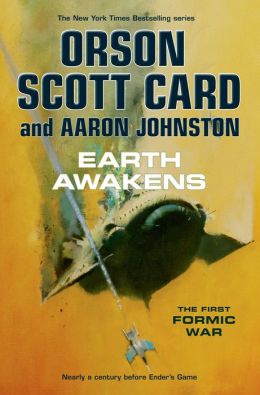



 Last weekend was my alma mater’s high school graduation. A thrilling, momentous (and gorgeous) day! It made me think back to my own graduation and the fact that what scared me at 18 scares me still: moving forward into the unknown. In fact, if I could go back and give myself advice it would probably be this: The future is scary. It never stops being scary. Get used to it. And don’t be scared.
Last weekend was my alma mater’s high school graduation. A thrilling, momentous (and gorgeous) day! It made me think back to my own graduation and the fact that what scared me at 18 scares me still: moving forward into the unknown. In fact, if I could go back and give myself advice it would probably be this: The future is scary. It never stops being scary. Get used to it. And don’t be scared.















 Nearly
Nearly 



 The producers of the Ender’s Game adaptation have
The producers of the Ender’s Game adaptation have  In South Carolina, Aiken Public Safety
In South Carolina, Aiken Public Safety 

 Marie Lu‘s debut novel, Legend, hits the shelves tomorrow. We caught up with Lu (pictured,
Marie Lu‘s debut novel, Legend, hits the shelves tomorrow. We caught up with Lu (pictured, 




.jpg)


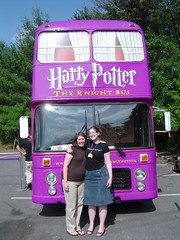


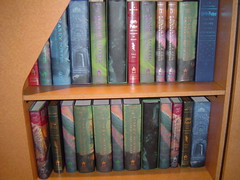
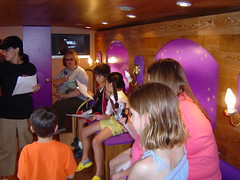
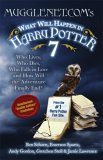
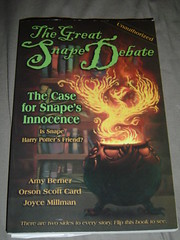
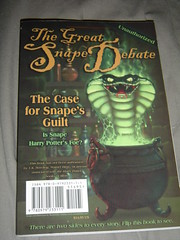
Imagine if a comic artist refused to draw pictures for a story written by a gay man. How would that make you feel? Outraged, right?
So why is the opposite situation perfectly acceptable? Hypocrites.
“So why is the opposite situation perfectly acceptable? Hypocrites.”
Only if said gay author is actively engaged in trying to deny people basic human rights.
Got any real world examples you can point to?
Mmmph. Has anyone actually seen/read the Card story in question? If he’s going to express his hate and bigotry in the story, that’s one issue, and I’d definitely say show the guy the door. But on the other hand, it’s possible he just wrote a story, and *didn’t* drag his personal politics into it. Anyone outside of the DC editors actually know one way or another?
>So why is the opposite situation perfectly acceptable? Hypocrites.
Oh, I think I know this one! Is it because homosexuals are not campaigning against the rights of heterosexuals? Is that it? Do I win?
@Tacodue: Not equivalent. For one, what you’ve described isn’t the opposite situation. Also, Sprouse hasn’t stated that Card’s views are his reason for leaving the book.
Two, this isn’t as simple as a disagreement with Card’s believe. He’s actively campaigning against gay rights as a board member of NOM. If a conservative writer/artist decided to they didn’t want to work with a writer/artist who on the board for a pro-gay marriage group and withdrew from the project (in a non-douchey way) it likely wouldn’t be an issue.
But you really just wanted to set up a straw man, right?
[...] Chris Sprouse Steps Away from Orson Scott Card’s Superman Story (comicsbeat.com) [...]
[...] DC backed Card, The Beat and others report that Sprouse stepped down after protest of the comic. “The media surrounding this story [...]
[...] DC backed Card, The Beat and others report that Sprouse stepped down after protest of the comic. “The media surrounding this story [...]
[...] DC backed Card, The Beat and others report that Sprouse stepped down after protest of the comic. “The media surrounding this story [...]
[...] DC backed Card, The Beat and others report that Sprouse stepped down after protest of the comic. “The media surrounding this story [...]
Chris Sprouse’s response actually sounds like someone whose professional.
That’s the professional way to quit a book. Whatever his private reasons, that’s nothing to do with us. He has the right to not work on projects that affect his art (as he says in his statement).
Calling him a “coward” (as the 2nd poster) did is shocking and uncalled for.
I work with a lot of people. I don’t agree with all of their political or religious beliefs. All of us will have different positions on gay marriage or immigration or gun control or animal rights.
But I can still work with them.
And the products we make are not impacted in the least by our different beliefs.
Every single supporter of Card that bleats about ‘free speech’ is in desperate need of learning the concept of ‘false equivalency’. Seriously, please…take some college classes before indignantly spouting ignorance as a ‘point of view’. If you have been to college, go back and take some sociology courses, and actually pay attention.
I feel for fans of Ender’s Game, but keep this in mind: Card was not the same person back then that he is today. His views either became very ugly over time, or were always ugly, and he’s only now being vocal about it (I suspect it’s the former, rather than the latter). As sad as that is, I suppose there’s always hope he could evolve for the better. Some people like him do have an awakening or enlightenment, and with it comes crushing shame over their former limited, narrow view.
It’s not often, but I have seen it happen.
da beat needz hitz yo
“And the products we make are not impacted in the least by our different beliefs.”
I’ve a copy of “Holy Terror” (well actually I don’t because Frank Miller’s another person into whose pocket I won’t put money) that would beg to differ.